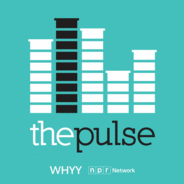When we're feeling morally outraged — over politics, global conflicts, or violence, like the recent murder of United Healthcare CEO Brian Thompson — what's at the root of this feeling? Psychologist Kurt Gray argues that moral outrage is tied to fear and perceived harm. He joins us to discuss his forthcoming book "Outraged: Why We Fight About Morality and Politics and How to Find Common Ground."Learn more about sponsor message choices: podcastchoices.com/adchoicesNPR Privacy Policy

Wissenschaft & Technik
The Pulse Folgen
Go on an adventure into unexpected corners of the health and science world each week with award-winning host Maiken Scott. The Pulse takes you behind the doors of operating rooms, into the lab with some of the world's foremost scientists, and back in time to explore life-changing innovations. The Pulse delivers stories in ways that matter to you, and answers questions you never knew you had.
Folgen von The Pulse
177 Folgen
-
Folge vom 13.12.2024Why We're All So Outraged
-
Folge vom 06.12.2024Parrot or Prophet: How AI is Shaping LanguageFor thousands of years, we've thought of language as one of the key features that makes humans unique. But with the rapid evolution of large language models, the line between human communication and AI is starting to blur. On this episode, we explore the possibilities and limits of AI-generated language, how it's changing the way we communicate, and the implications for what it means to be human.Learn more about sponsor message choices: podcastchoices.com/adchoicesNPR Privacy Policy
-
Folge vom 29.11.2024When Being 'Gifted' No Longer Feels Like a GiftWhat does it mean to be 'gifted'? Who qualifies and how should we teach and treat gifted children? And, where do the limits of their talents lie? On this encore episode, we hear stories about the challenges of growing up gifted, how musical prodigies are made — and identified, and what a chess wunderkind has to teach us about the value of raw talent vs. experience.Learn more about sponsor message choices: podcastchoices.com/adchoicesNPR Privacy Policy
-
Folge vom 22.11.2024Thanksgiving Disasters — And How to Avoid ThemThanksgiving is a lovely holiday — a time for food, family, and counting our blessings. But let's face it: The festivities don't always go as planned. On this episode, we explore the full range of holiday catastrophes, from travel hiccups to cooking disasters, and offer expert advice on how to avoid them.Learn more about sponsor message choices: podcastchoices.com/adchoicesNPR Privacy Policy
